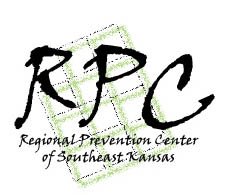The Regional Preventi0n Center and the Addiction Recovery Center are co-hosting an open house at 1105 Hugh, Frontenac, KS to help education community members, agencies, and other professionals about the services from prevention to treatment that are available in the community.
Join us from 3 pm to 7 pm on September 22nd!

The Regional Prevention Center of Southeast Kansas
Established in 1987, the Regional Prevention Center of Southeast Kansas serves the 11 counties of Southeast Kansas: Allen, Anderson, Bourbon, Cherokee, Crawford, Labette, Linn, Montgomery, Neosho, Wilson and Woodson.
The RPC works directly with local groups and individuals to mobilize communities through the Strategic Prevention Framework using data to target high risk area for youth. This information can then be used to implement new prevention services and/or make existing prevention services more available.
The RPC works directly with local groups and individuals to mobilize communities through the Strategic Prevention Framework using data to target high risk area for youth. This information can then be used to implement new prevention services and/or make existing prevention services more available.
Monday, September 15, 2008
Binge Drinkers Forget Worst Aspects of Being Drunk
Binge drinkers tend to forget the negative aspects of getting drunk and focus on the pleasant memories, which may help explain why they continue to drink despite instances where they get sick, black out, or have other problems. The Independent reported Sept. 10 that Theodora Duka, a researcher from Sussex University, said that studies show that alcohol affects memory selectively, and that many binge drinkers don't remember the worst aspects of their drinking experiences.
"The effects of alcohol on mood are known contributors to its use and abuse. It is less known how its effects on memory and inhibitory control add to alcohol being and addictive drug," said Duka, a Sussex University professor. "Material acquired in an intoxicated state is less effectively retrieved in a sober state. Thus people who abuse alcohol forget the consequences of intoxication during periods of abstinence."
"The effects of alcohol on mood are known contributors to its use and abuse. It is less known how its effects on memory and inhibitory control add to alcohol being and addictive drug," said Duka, a Sussex University professor. "Material acquired in an intoxicated state is less effectively retrieved in a sober state. Thus people who abuse alcohol forget the consequences of intoxication during periods of abstinence."
Subscribe to:
Comments (Atom)
